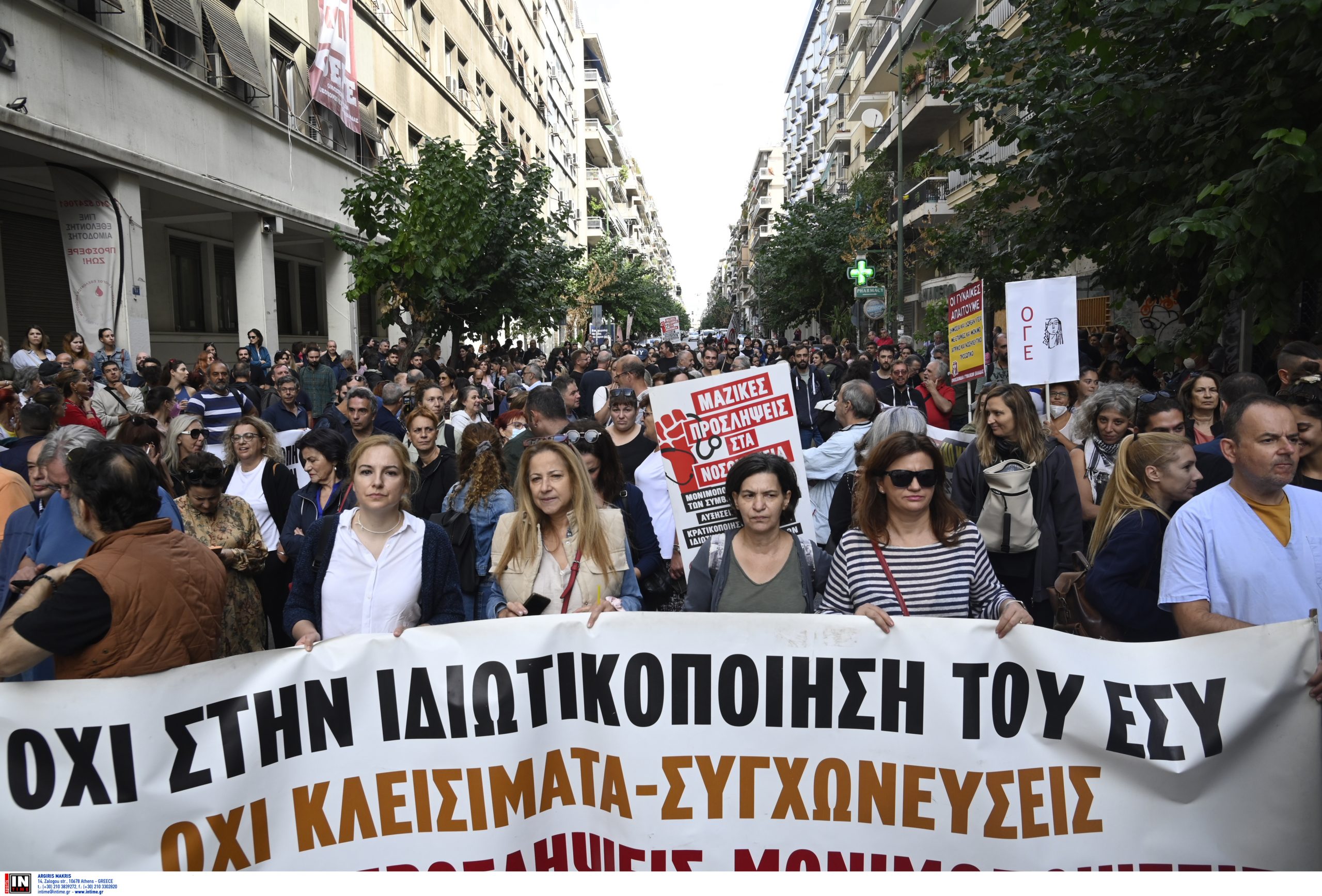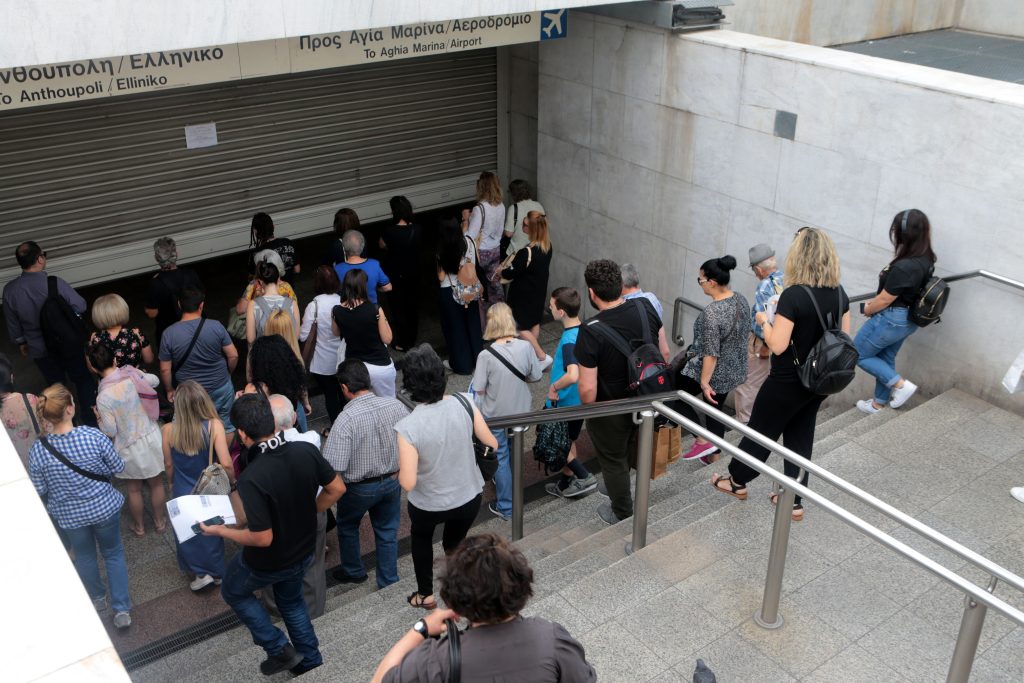Doctors and healthcare workers across the country are on strike today, demanding better wages and working conditions.
The strike has been called by the Panhellenic Federation of Public Hospital Workers and the Federation of Hospital Doctors of Greece, decrying long-standing cuts, understaffing, and declining conditions in the public health system. Workers held a gathering and marched to the doors of the Ministry of Health in Athens.
In their strike declaration, the Federation of Hospital Doctors of Greece criticized the “prioritization of profits,” calling for a nationwide strike to protest the commercialization and privatization of the public health system: “Enough! We are not going to accept after 10 years of memoranda, crises, embargos on health-care hiring, cuts in our wages and our rights, to sacrifice our needs and in a time of growth to to increase the profits and privileges of the few.” They called for, “substantial increases in our wages, for mass recruitment of permanent staff, for humane hours, for free health care for all the people.”
Specifically the demands are:
- Doubling of hospital doctors’ salaries: a 20% increase in the basic salary and doubling of the hourly rate of on-call pay immediately for all grades. Restoration of holiday bonuses. Additional (overtime) on-call time to be untaxed. Bonuses for dangerous and unhealthy work.
- Massive permanent recruitment of full-time doctors. Open advertisement of all vacant posts until they are filled. Employment of all contract workers without conditions.
- Adequate funding from the state budget for the public health system. Free health care for all people.
- No exceeding of the 48-hour on-call limit. No transferring of doctors. No interns or residents on call without a qualified doctor present.
The Panhellenic Federation of Public Hospital Workers declaration similarly decried disinvestment in the public health system. They mapped this defunding to a host of issues– critical shortages in operating theaters, long patient waiting lists, and increasing reliance on private healthcare. They point to low wages, poor working conditions, and mass departures of health workers, resulting in thousands of vacancies across hospitals. They state that there are at least 45,000 unfilled positions in hospitals across the country.
“The health centers are running out of staff,” stated their strike declaration, “Due to lack of rescuers, in many cases ambulances are simply operated by a crew of uniformed people who do not know about medicine and are without any kind of health personnel. Due to lack of staff and doctors, many Health Centers do not operate 24 hours a day. Many of the hospitals in the provinces and islands have lost their secondary-care function and have been transformed into ambulance centers with great danger for patients.”
The workers demand the recruitment of permanent staff, salary increases, and the restoration of full employment conditions for public health system doctors.
According to the Hellenic Statistical Authority, The total funding for health expenditure in Greece was 8.5% of GDP in 2022.
But according to the 2021 European Observatory on Health Systems and Policies report, under 60% of that health spending came from public sources, significantly lower than the average in the EU of 80 %. In Greece, 35 % of the country’s health spending was paid out-of-pocket.
Between 2009 and 2017 public health expenditure in Greece was cut over 40%, though spending increased some from 2018 to 2022.
According to Eurostat data Greece faces significant gaps in healthcare coverage due to high costs, distance to the nearest clinic or hospital, and long waiting times. Figures indicate that the situation in Greece has deteriorated significantly since 2022.
Additionally, this spring, a study conducted by the National Register of Physicians found that more than half of all Greeks are not satisfied with the country’s health system. The study also found that the majority of doctors (91.6%) and citizens (82.8%) are in favor of increasing the salaries of medical doctors on par with their EU counterparts






